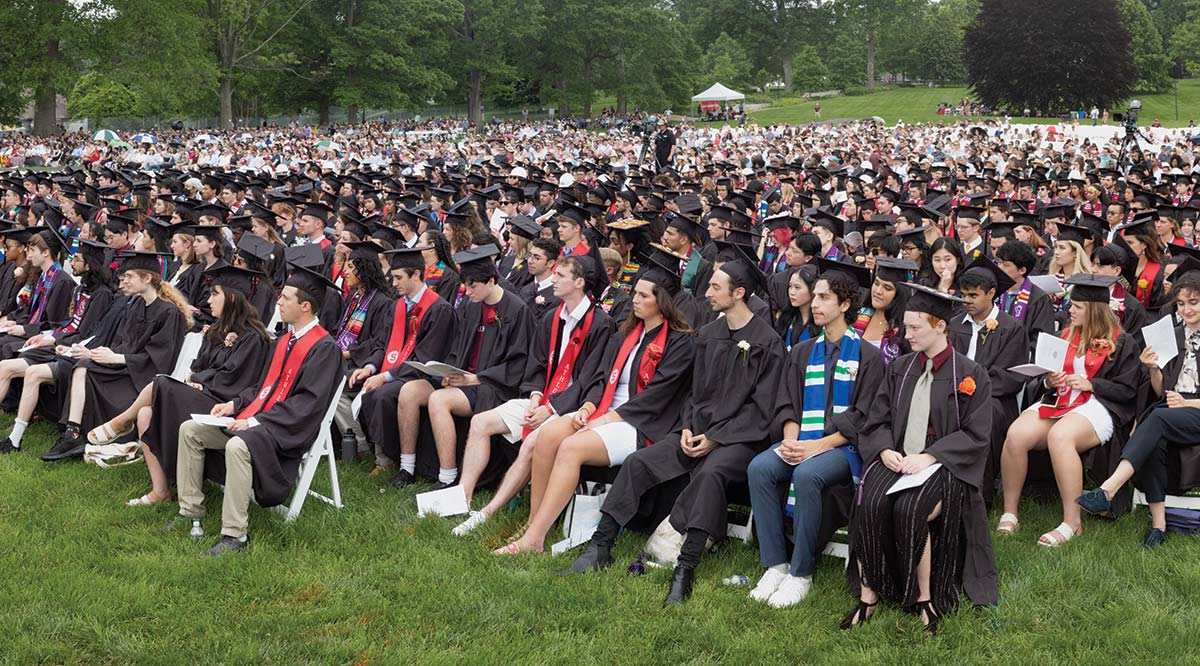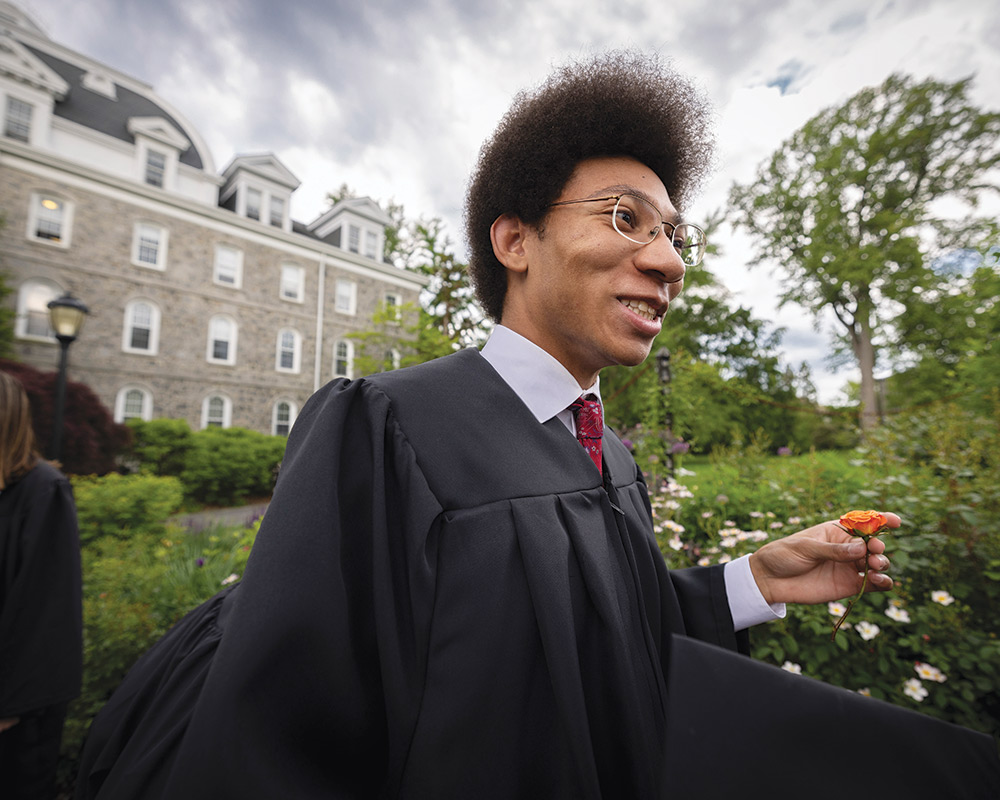



Under Brightening Skies
The concept of “liquid time,” invoked by President Valerie Smith and recalled by other speakers at Commencement, captured the essence of the May celebration.
“During the past couple of years, we’ve noticed the way our sense of time and the illusion of its linearity depend upon rituals, whether personal, familial, or institutional,” Smith said. “When those are suddenly snatched away from us, they upend our sense of temporality and plunge us into ‘liquid time.’”
The subtext was not lost on the graduates and their families and friends, nor College faculty and staff, gathered on Mertz Lawn. A reprieve from the uncertainty and anxiousness of the past two years, Swarthmore’s 150th Commencement was both a celebration of the classes of 2022 and 2020 and a collective exaltation.
“We waited a long time for this,” said the parent of one of the 2020 grads, flashing a wide smile. “Then a couple more years.”
It began with grads streaming in from all directions — one last early morning appointment on campus. Many stopped at Parrish Beach for a final Big Chair photo opp with friends.
Outside Trotter Hall, staff and faculty directed the classes of 2022 and 2020 as well as a few members of 2021 to their spots in the procession. There were lasting hugs between members of the different classes. About 30 minutes before the procession, the sun burst through the clouds right as “Bittersweet Symphony” played, with snapshots of the students’ time at Swarthmore on the big screen. The Clothier Bell Tower rang at 10 a.m., marking the start of the procession. Faculty and staff beamed and applauded for every last graduate as they made their way to the Commencement stage.
— RYAN DOUGHERTY